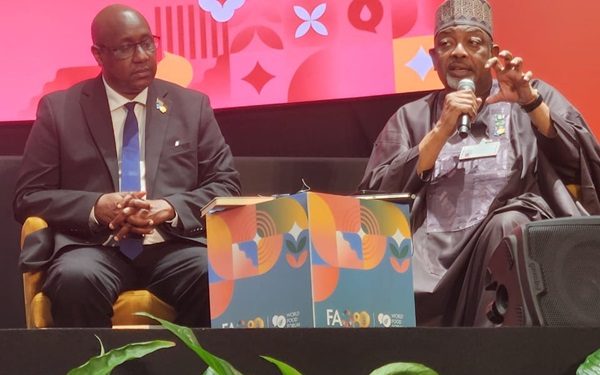The Federal Government has reaffirmed its commitment to leveraging South–South and Triangular Cooperation (SSTC) as a key driver of agrifood transformation and sustainable development, harnessing knowledge, expertise, and resources from partner nations.
Speaking at a dialogue on SSTC in Italy, Minister of Agriculture and Food Security, Abubakar Kyari, said the initiative would enhance the bargaining power of developing countries in global forums while promoting a more balanced economic system. According to a statement by the ministry’s Head of Information, Ezeaja Ikemefuna, SSTC forms a core pillar of Nigeria’s agricultural development strategy, fostering innovation, knowledge exchange, and inclusive growth.
“Effective cooperation must be rooted in mutual respect, national ownership, and measurable outcomes. SSTC is one of the most practical and cost-effective models for achieving food security and shared prosperity,” Kyari said.
Highlighting progress achieved through SSTC partnerships, the minister cited collaborations with China and the Food and Agriculture Organization (FAO), which have delivered results in technology transfer, farmer training, aquaculture development, and the establishment of Regional Multi-Service Extension Centers.
Kyari added, “The lessons we draw from our partnerships with China, Brazil, and others reaffirm that the Global South has the capacity, knowledge, and innovation to solve its challenges if we work together in solidarity.”
He outlined Nigeria’s priorities for deepening SSTC’s impact, including integrating SSTC programmes into national agricultural strategies to align with the National Agrifood Systems Transformation Agenda, establishing flexible funding mechanisms, encouraging blended finance models to scale up partnerships, and promoting collaboration on climate-smart agriculture, irrigation, mechanisation, and digital innovations to enhance productivity and resilience.
FAO Director-General Dr. Qu Dongyu commended Nigeria and other member nations for their sustained commitment to building inclusive and sustainable agrifood systems, stressing that the next phase of South–South Cooperation must be supported by stronger institutional frameworks and targeted investments.
Through these efforts, the FG aims to position Nigeria as a leader in collaborative agricultural innovation, empowering local farmers, boosting productivity, and creating sustainable growth opportunities for SMEs and agribusinesses nationwide.










